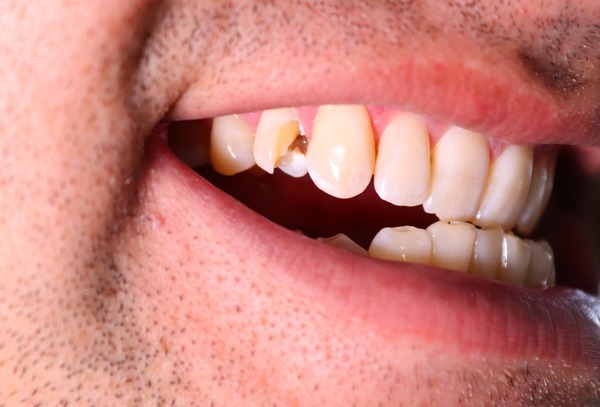Dental trauma can strike unexpectedly, causing panic and pain. Knowing how to handle such emergencies can make all the difference.
At Perfect Smile Spa in Essex, we aim to equip you with the knowledge to manage dental trauma effectively. Let’s explore what dental trauma is, its types, immediate actions to take, and preventive measures.
Understanding Dental Trauma
What is Dental Trauma?
Dental trauma refers to any injury to the teeth, gums, or surrounding tissues. It can range from minor chips to severe fractures or dislodged teeth, often resulting from accidents, sports injuries, or falls.
Common Causes of Dental Trauma
Common causes include sports-related injuries, car accidents, falls, and even biting on hard objects. Understanding these causes can help in taking preventive measures.
Types of Dental Trauma
Tooth Fractures
Tooth fractures vary in severity, from minor chips to significant breaks. Immediate attention is crucial to prevent further damage.
Dislodged Teeth
A dislodged tooth, either partially or fully, requires immediate care to increase the chances of saving the tooth.
Soft Tissue Injuries
Injuries to the gums, lips, and other soft tissues are common in dental trauma and can cause significant bleeding and pain.
Root Fractures
Root fractures occur below the gum line and are often invisible to the naked eye. They can lead to severe complications if not treated promptly.
Immediate Steps to Take After Dental Trauma
Assessing the Situation
Stay calm and assess the injury. Check for bleeding, swelling, and the condition of the teeth and soft tissues.
Managing Pain and Swelling
Apply a cold compress to reduce swelling and take over-the-counter pain relief if necessary. Avoid aspirin, as it can increase bleeding.
Preserving a Knocked-Out Tooth
If a tooth is knocked out, handle it by the crown, not the root. Rinse it gently and try to reinsert it into the socket. If that’s not possible, keep it in a container of milk or saliva and see a dentist immediately.
Seeking Professional Help
When to See a Dentist
Seek immediate dental care if you experience severe pain, bleeding, or if a tooth is dislodged or fractured.
Emergency Dental Care Options
Many dental practices offer emergency services. At Perfect Smile Spa, we prioritise urgent cases to provide prompt and effective treatment. Call us to enquire about our emergency dental treatment in Essex.
Long-term Treatment and Care
Dental Restoration Techniques
Depending on the severity of the trauma, treatments may include bonding, crowns, root canals, or dental implants.
Follow-Up Appointments
Regular follow-ups ensure that the injury is healing correctly and help prevent long-term complications.
Preventing Future Injuries
Consider preventive measures such as mouthguards, especially if you’re involved in contact sports or activities with a high risk of dental injuries.
Preventive Measures for Dental Trauma
Using Mouthguards
Custom-fitted mouthguards provide excellent protection for athletes and are highly recommended for preventing dental injuries.
Practicing Good Oral Hygiene
Strong, healthy teeth are less prone to damage. Regular brushing, flossing, and dental check-ups are essential.
Safe Practices in Sports and Daily Activities
Be mindful of your surroundings and avoid risky behaviours that could lead to dental injuries. Always wear protective gear when necessary.
The Role of Regular Dental Check-ups
Early Detection of Potential Issues
Regular dental visits help in early detection of issues that might increase the risk of dental trauma, such as weakened teeth or gum disease.
Professional Cleaning and Maintenance
Professional cleanings remove plaque and tartar, keeping your teeth strong and healthy, reducing the risk of injury.
Conclusion
Dental trauma can be alarming, but knowing how to handle it can significantly impact the outcome. At Perfect Smile Spa, we’re committed to providing the best care and advice to keep your smile intact. Remember, preparation and prompt action are key to managing dental emergencies effectively.
FAQs
Q1: How soon should I see a dentist after dental trauma?
It’s crucial to see a dentist immediately, especially if a tooth is dislodged or there is severe pain and bleeding.
Q2: Can a knocked-out tooth be saved?
Yes, if you act quickly. Rinse the tooth, try to reinsert it, or keep it in milk and see a dentist within 30 minutes.
Q3: Are over-the-counter painkillers effective for dental trauma?
Over-the-counter painkillers can help manage pain, but avoid aspirin as it can increase bleeding. Consult a dentist for appropriate care.
Q4: How can I prevent dental trauma during sports?
Wearing a custom-fitted mouthguard is highly effective in preventing dental injuries during sports.
Q5: What should I do if a dental trauma causes a tooth fracture?
Rinse your mouth with warm water, apply a cold compress, and see a dentist as soon as possible to prevent further damage.




 132a High Street
132a High Street 01708442114
01708442114  care@perfectsmilespa.co.uk
care@perfectsmilespa.co.uk


